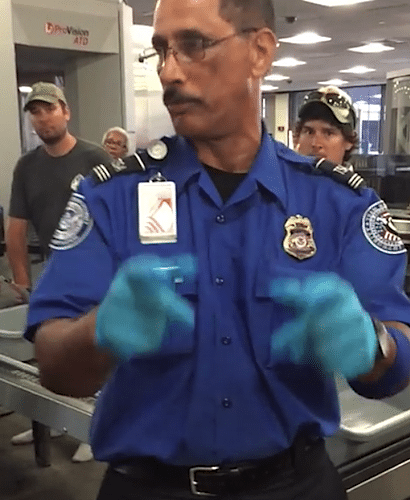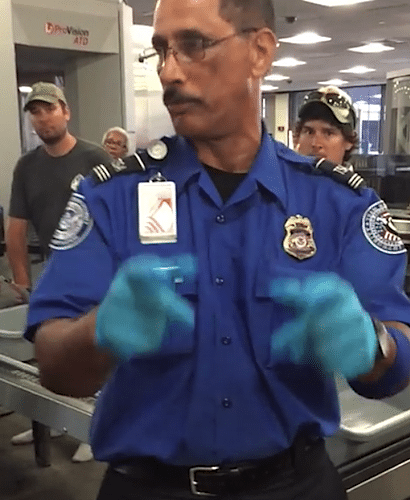We have yet another case of a police or security officer threatening a citizen for recording an encounter. The videotape below was taken by a young man who filmed the putdown of his father at the New Orleans airport. The supervisor warns the young man that he will be arrested for filming the public scene.
What is most striking is that the young man calmly explains that that TSA regulations allow such filming so long as people do not photographs the monitors. This appears news to the TSA supervisor who should be aware of such key regulations. The young man was right. Here is the language from the TSA:
TSA does not prohibit the public, passengers or press from photographing, videotaping or filming at security checkpoints, as long as the screening process is not interfered with or slowed down. We do ask you to not film or take pictures of the monitors. While the TSA does not prohibit photographs at screening locations, local laws, state statutes, or local ordinances might.
Taking photographs may also prompt airport police or a TSA official to ask what your purpose is. It is recommended that you use the Talk To TSA program on tsa.gov to contact the Customer Support Manager at the airport to determine its specific policy. Or, if you are a member of the press, you should contact the TSA Office of Public Affairs.
This young man was clearly not interfering with operations. If he was, then there is no ability to film a TSA checkpoint. You can judge for yourself:
There is no indication that the TSA is taking steps to discipline this supervisor or order new training on how to handle such incidents. There should be in my view.
Reprinted with author’s permission.


